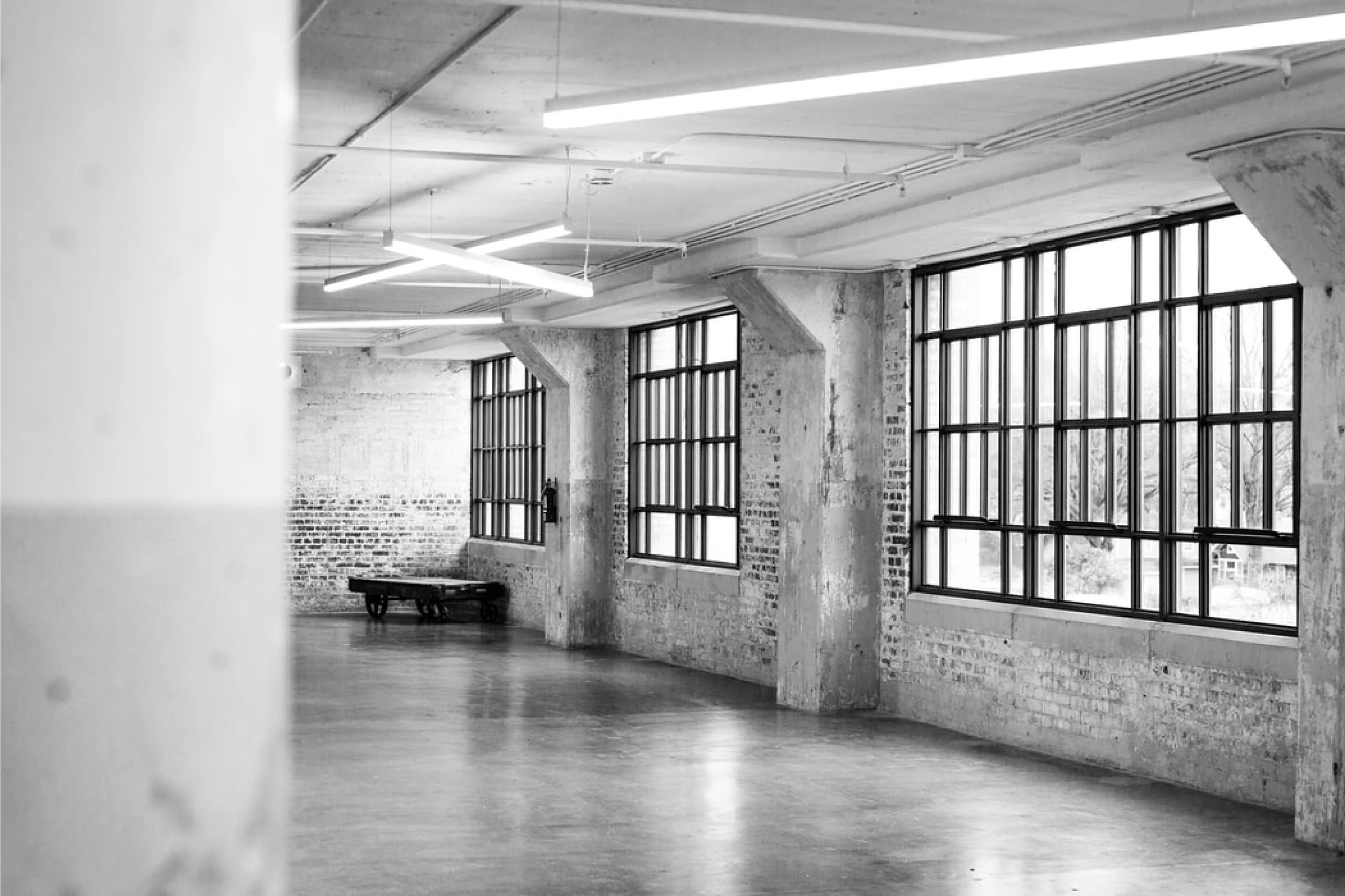Negotiating Free Rent in Commercial Real Estate
When opening a business, it’s vital that you save capital everywhere you can.
That’s part of being an entrepreneur, right? Bootstrapping it.
And once you’ve found your new location, that monthly rent payment will be one of the largest liabilities you have on your balance sheet, so it’s important that you keep it as low as you can.
But did you know that there’s a way for you to open without paying any rent?
Let’s take a look at how to get free rent for your business.
What Rent Abatement (Free Rent) Means
“Rent abatement” is the legal term for “free rent.”
Essentially, it means a period of time where the tenant (you) is not responsible for paying rent.
However, you are allowed to occupy your location and even operate your business out of the space depending on how you negotiated that free rent period.
Business owners, especially those who are not represented by a tenant rep broker or a commercial attorney, often have no idea that they can even request free rent when signing a new lease or that it is, in fact, fairly common.
Rent abatement, however, is not just for free rent on the front end of your lease. It will also cover any period of time where you are unable to open and operate your business due to major property repairs, destruction of the building, or other environmental circumstances.
We’ll cover all of these circumstances so you have a full understanding of how and when it is appropriate to negotiate for free rent.
When You Should Request Rent Abatement
Early During Negotiations
Rent abatement is a typical point of negotiation for commercial leases.
You, or your representation if you’ve hired a broker and an attorney (which we do highly recommend), will request a rent abatement period in the very first round of negotiating the Letter of Intent.
Since your free rent period is such a major consideration for you, it should be presented as early as possible. If you have gone back and forth a few times on negotiations and the free rent period was never mentioned, your landlord may change the terms of the deal completely and you’ll have to start over.
The earlier you request free rent, the more leverage you have to negotiate favorable rent abatement terms.
When Opening A New Concept
Those first few months on a new venture are new territory.
You have no idea how long it will take your target customer to find you, when your business will find its groove, and when you will become profitable. While your business operations are none of your landlord’s concern, your success is.
Having a period of time where you can get into your space, get settled in, and have money coming through the door before your overhead really kicks in is incredibly helpful. In fact, it can be the difference between whether your business fails or makes it to profitability.
Requesting a period of free rent during the initial months of your new lease is an excellent idea.
During Initial Tenant Improvements
Not every space is going to be a perfect, turn-key fit for your concept.
In fact, probably none will be.
So you’ll likely need to renovate or build out your new space before you can open and operate your business from that location. And that takes time.
Not only will you need time to get your plans and permits together, you have to have enough time to actually finish the work!
Depending on the condition of the space and your permitting environment, your build out could be anywhere from a few weeks to 6+ months.
You certainly don’t want to be on the hook for paying rent while you can’t even operate your business, so you’ll definitely want to request a free rent period if you plan to perform any work on the interior or exterior of the building.
When Your Commercial Space Is Untenantable
If you can’t occupy your space, you definitely don’t want to be liable for rent payments. And that’s exactly what a Casualty or Force Majeure Clause is intended to cover.
In the event that you and your business are unable to occupy or access your space due to fire, water, or other casualty, your lease should automatically kick in a rent abatement period.
Depending on the full scope of the damage done to the space, this type of free rent for your business could be partial abatement or total abatement of your payments.
This clause, again, is another reason for you to have an attorney.
You need to ensure that it covers any and all possible circumstances where you are unable to open and operate the building due to forces that are outside of your control. These scenarios could include a fire, flood damage, earthquakes & tornadoes, condemnation by the government, and even terrorist acts or pandemics.
Side note - unfortunately for business owners, pandemic clauses were not common at all in commercial leases when Coronavirus hit the United States. I have a feeling that may change moving forward.
Why A Landlord Would Give You Free Rent
You’re probably asking yourself, “why would the landlord just give away rent?” Well, there are multiple reasons.
The better you understand the landlord’s position, the better chance you have at successfully negotiating your rent abatement.
And it can actually be beneficial to the landlord to give you this free rent period. Here’s why:
Cash Reserves
Cash reserves are a new business’ lifeline.
The more cash you have on hand, the longer your burn rate is and therefor the more time you have to become a profitable, successful company.
It’s in both of your best interests for your venture to succeed. You have an excellent location to operate your business. Your landlord can count on collecting his rent every month.
Budgeting for your commercial space is highly important, but so are your cash reserves.
When you’re spending money to move, order inventory, and build out a space, it’s important that you have a period of time to catch your breath and build that operating capital back up.
Cost of Vacancy
Having vacancy in a commercial property is expensive for investors.
Not only is the landlord unable to collect rent, but it can also be expensive to release the space since they have to pay commissions, run background and financial checks, and build out a space.
Providing free rent to a tenant signing a longer-term lease is one of the better options a landlord can take for incentivizing a tenant to take the space. It technically doesn’t cost them anything out of pocket and if they didn’t have you leasing the space, they’d likely have that vacancy anyway.
Keep in mind, too, that high-quality tenants that pay their rent on time are like gold to landlords. Show them why you are that business so they can also justify giving you more rent abatement.
Value of the Property
In commercial real estate, a property’s value is tied directly to the income it produces.
So, if a landlord decides to lower the asking rent, they are lowering the value of their property, which is not good for them or their lender.
Instead of negotiating down the monthly payments, the landlord could give you a period of free rent that, when blended with your actual monthly rent, brings your overall payments down.
When you understand the landlord’s objectives and how your rent payments directly impact the value of their property, you’ll have leverage for negotiating free rent.
How Much Free Rent Should You Request?
How Much Free Rent is Typical
The short answer: it depends.
There is no specific or set amount of time for the duration of a free rent period in commercial real estate.
I’ve seen rent abatement as short as a couple weeks so that a tenant can move in, get settled, and open for business. We’ve also negotiated a rent abatement period that lasted 8 months.
Why?
Because the landlord didn’t want to come out of pocket to cover any of the renovations that absolutely had to be done on that space. So, instead, the tenant agreed to pay for the full build out if the landlord gave them a free rent period to perform the build out and still have a few months of free rent after opening.
So, your free rent period will certainly depend on the property’s condition. It will also be based on your market.
When I first started working as a commercial real estate broker in 2013, it was common for us to offer 4-6 months of free rent to high-quality tenants. There had been such little activity in retail real estate for so long that the landlord was willing to incentivize tenants to sign longer lease terms.
Commercial spaces that were built in 2008 sat vacant for years. And landlords couldn’t lower their rental rates because it would devalue the property, so they started offering longer periods of rent abatement.
However, this sentiment changed around 2016/2017 when the market was on fire again.
We fell out of a tenant’s market and back into the landlord’s favor, so we dropped to less than 3 months’ rent abatement. In many cases, landlords wouldn’t offer any rent abatement to tenants because there was such high demand for so few available spaces.
So, in my experience, tenants right now can sometimes receive 2-3 months’ rent abatement on a 5-year lease. If you’re looking for a shorter term than 5 years, don’t expect any rent abatement. It’s often tough for the landlord to justify that expense for a short-term lease.
How to Get More Free Rent
If you want more free rent, sign a longer-term lease.
As we covered earlier, the landlord has significant expenses when they have a vacancy, but also when they have to refill and pay leasing commissions, tenant improvements, etc.
If the landlord knows that you’re going to be occupying the space for 10+ years, they will likely give you an abundant amount of free rent, which you could negotiate to receive 100% on the front end or periodically.
If you’re looking to sign an extension with the landlord after your initial base term, request free rent again! Remind your landlord how expensive it can be to lose a tenant and they will likely agree with you.
Some Final Points of Consideration
What if You Default on the Lease?
Free rent is considered a “concession” by the landlord during negotiations. Essentially, something they’re giving you in order to help you lease the space.
But that free rent period still technically has a dollar value associated to it.
If you default on your lease, meaning you’ve broken your legally binding agreement in some way, what is your responsibility with regards to the rent abatement concession?
Well, there’s a good chance that if you default or don’t stay through your entire lease term that you will be required to pay back all or a portion of any free rent given to you. In the legal (read: leasing) world, this is known as a clawback provision.
A clawback provision means that anything the landlord “gave” you must be repaid to them.
Landlords often amortize these expenses over the full term of your lease, so, depending on how your lease is worded, you may not be responsible for 100% of the amount of the free rent. For example – if you’re lease term was three years and you default after one year, you’d be responsible for 2/3s of that amount of free rent given to you.
Sure, you can fight to negotiate this clause out of the lease, but it’s unlikely that a landlord will concede this point considering they are giving you free rent with the expectation that you don’t default.
Is Your Landlord Granting a Full Rent Abatement?
Your free rent period may not mean you have zero rent responsibilities.
When we’re discussing “free rent,” it’s most often applied just to your base rent. Depending on your lease structure, you may still be responsible for any additional rent due per the lease.
Additional rent can be anything such as your pro rata portions of Common Area Maintenance (CAM), property taxes, building insurance, and of course – your utilities.
Free rent is often given in this manner because the additional rent covers operating expenses of your business or the property, so while they’re technically “rent,” they’re separate from your base rent.
It’s important to have clarity as to what you will be responsible for before you sign the lease.
Share This Article:
About The Author:
Tyler Cauble, Founder & President of The Cauble Group, is a commercial real estate broker and investor based in East Nashville. He’s the best selling author of Open for Business: The Insider’s Guide to Leasing Commercial Real Estate and has focused his career on serving commercial real estate investors as a board member for the Real Estate Investors of Nashville. Learn more at www.TylerCauble.com




















Commercial real estate investing can be a pretty rewarding venture, offering the potential for substantial returns and long-term wealth creation. From office buildings and retail spaces to apartment complexes and industrial warehouses, the commercial real estate market presents diverse opportunities for investors willing to navigate its complexities.
However, like any investment, commercial real estate comes with its own set of risks. For new investors, understanding and managing these risks is crucial to achieving success and avoiding costly mistakes. The world of commercial real estate can be unforgiving to the unprepared, making risk management an essential skill for anyone looking to enter this market.